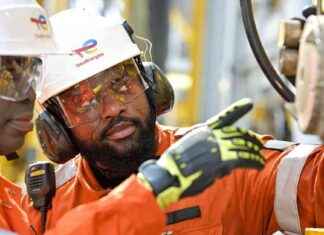The allegations of corruption against MP Eva Kaili, who has since been imprisoned, have shaken the EU. Katarina Barley knows them well from working together. This did not always go smoothly, says the parliamentary vice president in an interview with ntv.de.
ntv.de: Eva Kaili is said to have traveled to Qatar several times and in November publicly described the country as a pioneer for workers’ rights. Doesn’t that make you suspicious?
Katarina Barley: Of course you get suspicious. But you have to know about Eva Kaili that she has always been the weird bird in the faction. She has often shown a voting behavior that was incomprehensible to us. For example, in the wiretapping affair in Greece, she sided with the conservative government and not with that of her party leader, who himself was a victim of this affair. But neither I nor anyone else I spoke to imagined her sitting on sacks full of money at home.
Kaili was not only a colleague of yours in the parliamentary group, but also a colleague as parliamentary vice-president. How well did you know each other personally?
Because she was also Vice-President of Parliament, we had a lot to do with each other and dealt with similar things. There were very hard arguments between us. In many places she took a completely different line than I did. For example when she voted for the Conservative candidate in the election of the Secretary-General of Parliament, although I had expressed serious doubts about the procedure. We clashed hard there.
The investigations against Kaili were initiated by the Belgian judiciary, so they came from outside. Does the EU Parliament lack its own anti-corruption instruments?
Parliament is not a law enforcement agency. We have an Advisory Board that you can contact if you have any questions or possible violations of our Code of Conduct. In the case of Kaili, however, the transparency rules are not the problem. They are pretty sharp and even sharper than in the Bundestag. She didn’t hide her connections to Qatar and other Arab countries and published them publicly on her social media channels. In this respect, it is not a question of a lack of transparency in this particular case. There were people with high criminal energy at work. They ignored much stricter regulations, namely criminal law. It is therefore also correct that the public prosecutor’s office has taken on the case.
Nevertheless, the criticism of the European Parliament is currently high. The Green MEP Daniel Freund complains about a high susceptibility to opaque influence.
Wherever important decisions are made, lobbyists are not far away. The reaction of the population is sometimes: ban lobbying. But we make laws. Then we also have to talk to the people, companies or associations that are affected by these laws. But what we can and must do is create a lot of transparency. Our transparency rules apply very strongly to companies and associations. They can only talk to those responsible at all if they disclose many details. For example, which legislative requirements they are working on, how many people are deployed and how much financial resources are behind them. In contrast to the Bundestag, the situation in the European Parliament is that companies want to be included in the transparency register. Because only those who are entered in it have access to the decision-makers.
What are the consequences for companies and associations if they do not provide truthful information in the register?
This can have serious consequences and end up being thrown out of the transparency register and losing access to the decision-makers.
And for MPs?
For MEPs, it can have the consequence that they are withdrawn from reports by their groups. But MPs basically have a free mandate. This also makes negotiations about a tightening much more difficult. Because there are MPs from all parliamentary groups who do not want to make some meetings public for very good reasons. A few weeks ago I had a visit from a delegation of judges from South America. They said if our government even found out we were here, we couldn’t go back to our country. You would then end up in prison. So there are good reasons not to make such meetings public.
That’s one side of the coin. But one MEP is in prison on corruption charges. Doesn’t the transparency register need to be readjusted after all?
I would be very willing to further extend the obligations for MEPs. But as I said: Stricter transparency rules would not have changed anything in the Kaili case. There are severe penalties here. That’s really extreme.
Despite this, the EU itself says it needs to regain people’s trust. What measures must be taken for this?
First we have to clear up this case quickly, completely and consistently. And then we must do everything we can to close loopholes. Yesterday there was a resolution in Parliament stating that third countries should also be included in the transparency register. In addition, the protection of whistleblowers should be increased. In addition to the existing Advisory Board, an ethics committee is to be created that can act even more independently.
Is that enough?
We have to analyze where we can improve. Tightening up the transparency register for members of parliament is certainly one of them. The lesson to be learned from this case is: If things repeatedly seem strange to you, you have to investigate them better than before. Responsibilities must be created to look deeper into such cases.
Do these responsibilities not yet exist?
There are responsibilities in the transparency register, in the parliamentary groups and in the executive committee. That should be bundled. We need a position that can look into all areas. And to whom everyone can turn, whether members of parliament, employees and others, also from outside. That would definitely be progress.
Marc Dimpfel spoke to Katarina Barley






